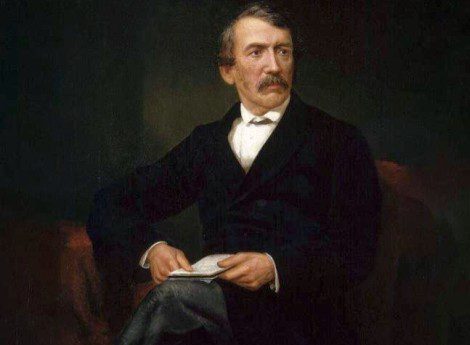 By Brenda Cannon Henley
By Brenda Cannon Henley
The subject of the human heart has had volumes written about it by authors of every area – Medically, scientifically, sociological, behavioral, and spiritually. And even as I think about this vast subject, more is being debated, investigated, discussed, and written about it for us to read, study, and digest.
We all recognize the need for a healthy heart as human beings. Many know the meaning and value of a pure heart. Some suffer from a broken heart or perhaps a lonely or hurting heart. Most of us seek to have a happy heart. The Bible clearly states that wherever your heart is, there will be the treasures of your life. Scripture also teaches that whatever a man or woman puts in their heart will guide and direct them in life. And so, we strive to see that only good and right thoughts fill our hearts and minds.
My son, who is also my pastor, brought to my memory this morning in our service the life of David Livingstone, a missionary who loved and served in Africa. Many stories are written about Livingstone, both from the Christian prospective, but also from the scientific, exploration, trade, and commerce areas of history.
Livingstone is a Scottish missionary, doctor, and in exploring central Africa, is credited with spreading Christianity while fighting valiantly against the widespread slave trade. He is recognized by many as the greatest of all African missionaries, and was a genuine pioneer of the London Missionary Society.

Born on May 19, 1813, he lived to the age of 60, dying on May 1, 1873, at the Livingstone Memorial Site in Chipundu, Zambia. His biography states that in his ministry, he discovered and named Victoria Falls, which is a quite famous tourist site. He also discovered the Zambezi River and several other important lakes. These discoveries brought him great fame and accolades.
In the meantime, his wife had died and he had survived a vicious attack by a lion which caused his left arm to be practically useless. His body was also wracked by other illnesses, and yet, he perservered reaching the African population.
After a series of severe setbacks and Livingstone witnessing a horrible human masacree of over 400 slaves, he dropped out of touch for some six years. He continued reaching the African people and stayed in various villages. On Nov. 10, 1871, a New York Herald reporter, Henry Morton Stanley, sent to try to locate him, did just that in Ujit. The famed literary quote is said to have been born there when Stanley said, “Dr. Livingstone, I presume?” Stanley is later quoted as having said, “It really wasn’t difficult. Livingstone was the only white man in over 600 miles.” Stanley tried to get Livingstone to accompany him back to England, but he steadfastly refused.
Livingstone’s health continued to decline and he died on May 1, 1873, in Chief Chitambo’s village in Zambia. His body was found with Livingstone on his knees in a praying position. Chief Chitambo made a decision about the man he knew so well.
He ordered Livingstone’s heart cut carefully from his body before Africans took that body to a ship some 1,500 miles away. He was buried in Westminister Abbey with dignity and pride. With the body, the chief attached a note. It said, “You can have Dr. Livingstone’s body to be buried there, but his heart belongs in Africa.”
Do we as Christians have enough influence and our testimonies to others strong enough for them to be able to discern where our hearts truly are?
Brenda Cannon Henley can be reached at 409 781 8788, or
[email protected]
[BCH: Aug-1-2023]

 Posted in
Posted in 























